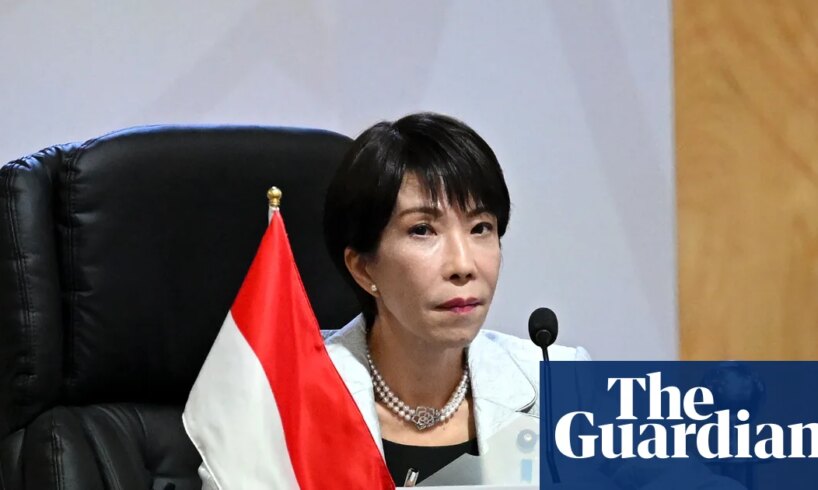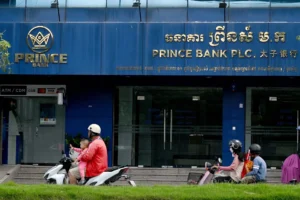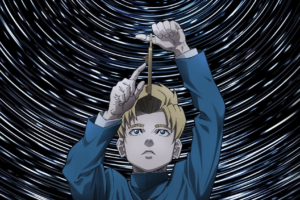
When she selected her wardrobe for this weekend’s G20 summit in South Africa, Japan’s prime minister, Sanae Takaichi, took extra care to choose something that – in her words – would “give her the upper hand” in negotiations.
But she never got the opportunity to test the theory in what would have been her most pressing engagement – talks with the Chinese premier, Li Qiang, aimed at easing a deepening diplomatic row between the north-east Asian neighbours.
Instead, they kept their distance during a group photoshoot on Saturday – setting a frosty tone that would continue for the rest of the summit, despite speculation that a brief handshake and exchange of courtesies was a possibility.
Two weeks after Takaichi angered Beijing by suggesting Japanese military intervention would be justified in the event of an attempted Chinese invasion of Taiwan, the two sides appear as far apart as ever.
Speaking to reporters at the end of the summit on Sunday, Takaichi – a conservative with hawkish views on China – said the door to dialogue remained open.
Sanae Takaichi (second left) and Chinese premier Li Qiang (second right) keep their distance during a photo at the G20 summit in Johannesburg. Photograph: Leon Neal/PA
She repeated the cordial language that had emerged from her meeting with the Chinese leader, Xi Jinping, at the Apec summit in South Korea less than a month ago, calling for a return to “mutual understanding and cooperation”.
She did not, though, agree to Beijing’s main condition for an end to the row – a retraction of her assertion this month that Japan would be entitled to engage in “collective self-defence” if an emergency in the Taiwan Strait created a “survival-threatening situation” for Japan.
While Japan’s government insists its longstanding policy on Taiwan remains unchanged, the response from Beijing has ignited talk that relations between China and Japan could be destined for a repeat of their angry dispute over the uninhabited Senkaku/Diaoyu islands in 2012.
China has warned its citizens not to travel to Japan, citing unspecified safety concerns, and reimposed a ban on Japanese seafood first introduced in response to the release of treated water from the Fukushima Daiichi nuclear power plant in 2023. Authorities also postponed the release of Japanese films and cancelled concerts by the country’s musicians.
Tokyo, meanwhile, has advised Japanese nationals living in China to take extra safety precautions.
Given the scale of their economic ties, the measures are comparatively minor, but they could also be the harbinger of more serious retaliation, including restrictions on exports of rare earth metals and intensified maritime activity around the Senkakus, which are administered by Japan but claimed by China.
Italian PM Giorgia Meloni greets Sanae Takaichi at the G20 in Johannesburg. Photograph: Leon Neal/PA
With no sign that Takaichi is about to withdraw her remarks, Chinese officials have sharpened their rhetoric.
China’s foreign minister, Wang Yi, described her remarks on Taiwan as “shocking”, adding that Japan had crossed a “red line” on the fate of the self-governing island, a democracy that Beijing says is an “inalienable part” of Chinese territory that will one day be annexed to the mainland, by force if necessary.
China has also taken the dispute to the UN, accusing Japan of threatening “an armed intervention” over Taiwan – located just 110km from Japan’s westernmost island – and vowing to defend itself.
Beijing’s ambassador to the UN, Fu Cong, accused Takaichi of committing “a grave violation of international law” and diplomatic norms.
In a letter to the UN secretary general, António Guterres, he wrote: “If Japan dares to attempt an armed intervention in the cross-Strait situation, it would be an act of aggression.
“China will resolutely exercise its right of self-defence under the UN Charter and international law and firmly defend its sovereignty and territorial integrity.”
Takaichi, whose encouraging diplomatic debut in South Korea last month has quickly been forgotten, faced questions about her judgment from opposition MPs, but her intransigence over Taiwan is doing her little harm with the public.
In a Kyodo news agency poll taken a week after the war of words began, her administration received an approval rating of 69.9%, up 5.5 percentage points from the previous poll. Tellingly, almost 49% supported Japan’s right to engage in collective self-defence in the event of a Taiwan crisis, compared with 44.2% against.





